
Phú Hội: The Heartbeat of Hue City
Phú Hội, located in the vibrant city of Hue, Vietnam, is a neighborhood that captures the perfect blend of historical charm and modern allure. Known for its close proximity to the iconic Perfume River, this area offers an excellent base for exploring Hue’s rich cultural heritage and contemporary attractions. Visitors to Phú Hội can immerse themselves in the timeless beauty of traditional Vietnamese architecture through its charming streets lined with colonial-era buildings. The neighborhood is also home to numerous boutique hotels, cozy cafes, and delightful eateries that serve both local and international cuisine. It's the ideal spot to savor authentic Hue dishes like Bun Bo Hue and Banh Khoai while enjoying the warm hospitality of local residents. In addition to its culinary delights, Phú Hội boasts a variety of shops and markets where you can find unique souvenirs, handcrafted goods, and traditional Vietnamese clothing. The bustling Dong Ba Market is just a short walk away and offers a sensory overload of sights, sounds, and flavors. Whether you are a history buff, a food lover, or a curious traveler, Phú Hội provides a rich and inviting experience that is not to be missed.
Local tips in Phú Hội
- Visit the Dong Ba Market early in the morning to experience the local hustle and bustle and grab fresh produce and local delicacies.
- Take a leisurely walk along the Perfume River in the evening to enjoy stunning views and a peaceful ambiance.
- Don’t miss the chance to try local specialties like Bun Bo Hue and Banh Khoai at nearby street food stalls.
- Consider renting a bicycle to explore the neighborhood and nearby attractions at your own pace.
- Visit the local cafes for a taste of Vietnamese coffee and to mingle with friendly locals.
Phú Hội: The Heartbeat of Hue City
Phú Hội, located in the vibrant city of Hue, Vietnam, is a neighborhood that captures the perfect blend of historical charm and modern allure. Known for its close proximity to the iconic Perfume River, this area offers an excellent base for exploring Hue’s rich cultural heritage and contemporary attractions. Visitors to Phú Hội can immerse themselves in the timeless beauty of traditional Vietnamese architecture through its charming streets lined with colonial-era buildings. The neighborhood is also home to numerous boutique hotels, cozy cafes, and delightful eateries that serve both local and international cuisine. It's the ideal spot to savor authentic Hue dishes like Bun Bo Hue and Banh Khoai while enjoying the warm hospitality of local residents. In addition to its culinary delights, Phú Hội boasts a variety of shops and markets where you can find unique souvenirs, handcrafted goods, and traditional Vietnamese clothing. The bustling Dong Ba Market is just a short walk away and offers a sensory overload of sights, sounds, and flavors. Whether you are a history buff, a food lover, or a curious traveler, Phú Hội provides a rich and inviting experience that is not to be missed.
Iconic landmarks you can’t miss
Hue Historic Citadel
Explore the majestic Hue Historic Citadel, a UNESCO World Heritage site showcasing Vietnam's imperial history and stunning architecture.
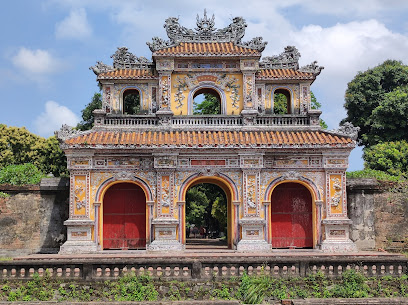
Đại Nội
Discover the historical wonders of Đài Nội in Hue, Vietnam, a UNESCO World Heritage Site filled with captivating architecture and lush gardens.
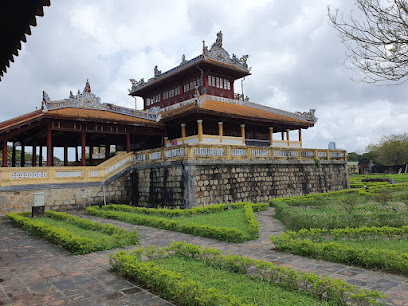
An Dinh Palace
Explore An Dinh Palace in Hue, Vietnam – a stunning historical attraction showcasing Nguyen Dynasty architecture and rich cultural heritage.
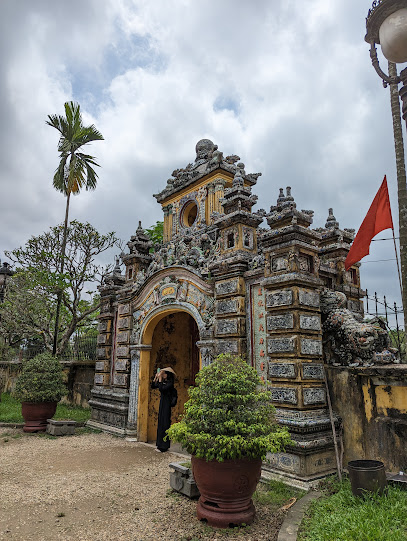
Hue Night Walking Street
Explore the vibrant Hue Night Walking Street, where culture, food, and local crafts come together in a lively evening atmosphere.
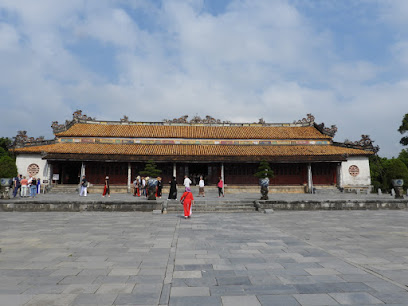
Nguyen Dinh Chieu Walking Street
Explore Nguyen Dinh Chieu Walking Street - a vibrant hub of culture, cuisine, and entertainment in the heart of Hue, Vietnam.
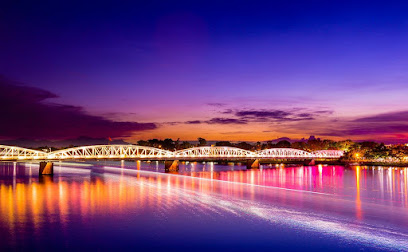
Phu Van Lau
Discover the historical wonders of Phu Van Lau, a stunning architectural gem in Hue, Vietnam, where history and nature beautifully intertwine.
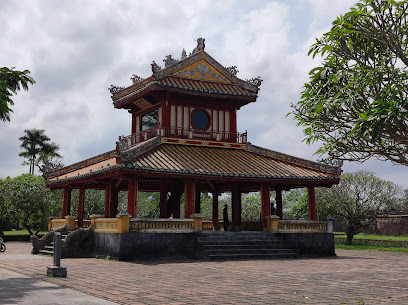
Phố Tây Huế
Explore Phố Tây Huế, a vibrant street in Huế, Vietnam, renowned for its lively atmosphere, delicious cuisine, and rich cultural experiences.
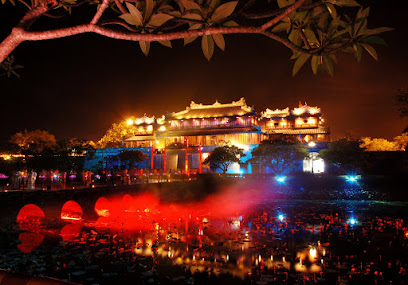
Miếu Âm Hồn
Discover the rich history and serene beauty of Miếu Âm Hồn, a fascinating temple in Huế, Vietnam, that honors fallen souls with its stunning architecture.
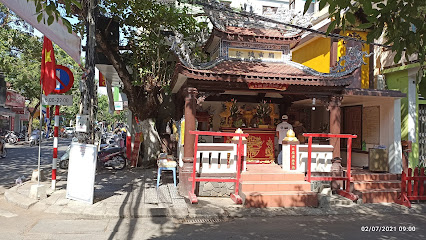
The Flag Tower
Discover the iconic Flag Tower in Hue, Vietnam, a historical landmark that offers stunning views and a glimpse into the country's rich heritage.
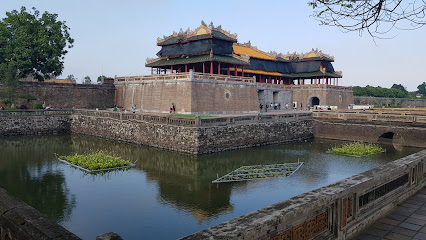
Phủ Tuy Lý Vương
Explore the captivating Phủ Tuy Lý Vương in Hue, a historical landmark blending royal heritage with stunning architecture.
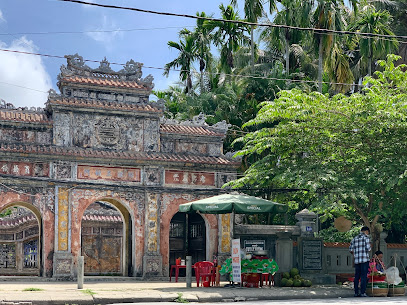
Unmissable attractions to see
Hue Historic Citadel
Uncover the rich history and stunning architecture of the Hue Historic Citadel, a UNESCO World Heritage Site in Vietnam.
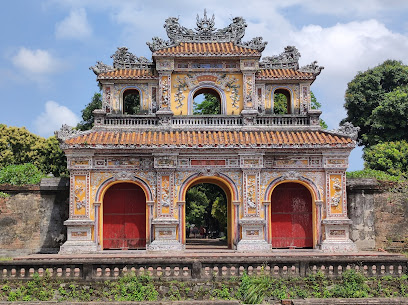
Thien Mu Pagoda
Discover the tranquility and cultural significance of Thien Mu Pagoda, a must-see Buddhist temple in Hue, Vietnam, surrounded by stunning landscapes.
An Dinh Palace
Experience the grandeur of An Dinh Palace, a historical gem in Hue, showcasing the rich culture and architectural beauty of Vietnam's Nguyen Dynasty.
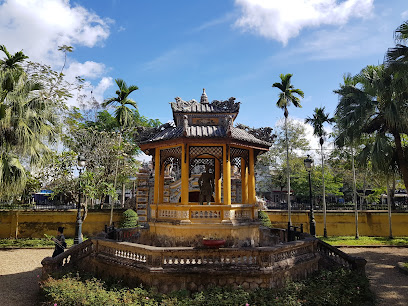
Hue Imperial City
Explore Hue Imperial City, a UNESCO World Heritage site rich in history, stunning architecture, and a vibrant cultural heritage in the heart of Vietnam.
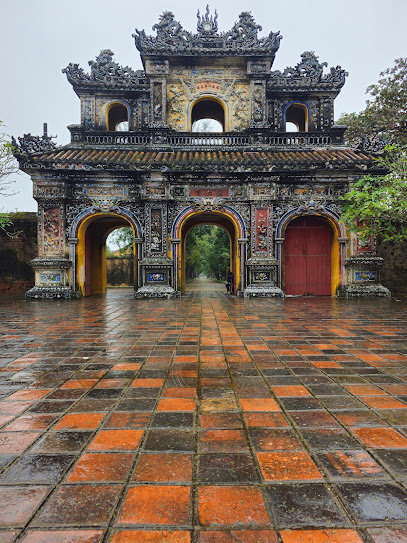
Phố Tây Huế
Discover Phố Tây Huế: the vibrant heart of culture, cuisine, and nightlife in historic Hue, Vietnam, where every street tells a story.
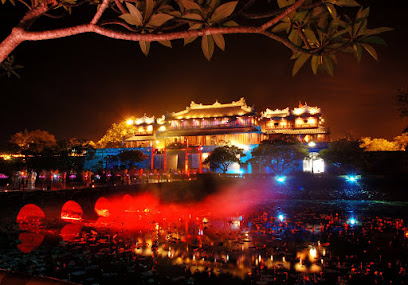
The Flag Tower
Explore the grandeur of the Flag Tower in Hue, a historical landmark that embodies Vietnam's rich cultural heritage and offers stunning views.
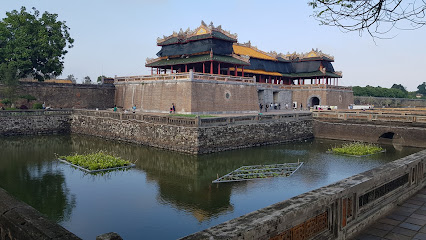
Essential places to dine
Madam Thu Restaurant - Taste of Hue
Discover authentic Vietnamese cuisine at Madam Thu Restaurant in Hue – where every dish tells a story of tradition and flavor.
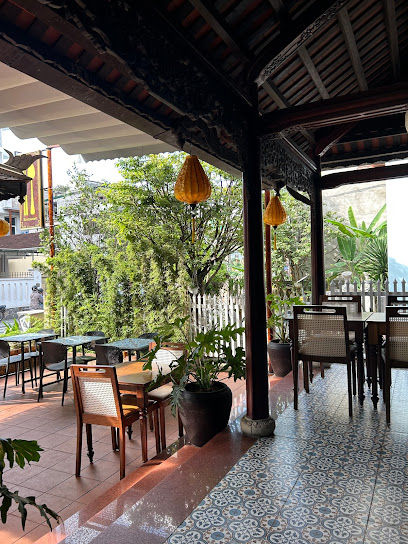
Nook Eatery-Breakfast to Burgers
Discover Nook Eatery in Huế: where traditional Vietnamese flavors meet modern culinary creativity in a cozy setting.
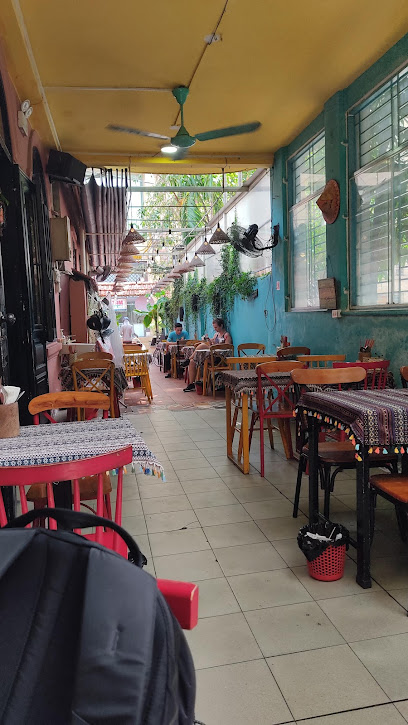
Maison Trang
Experience authentic Vietnamese cuisine at Maison Trang in Huế – where tradition meets flavor in every dish.
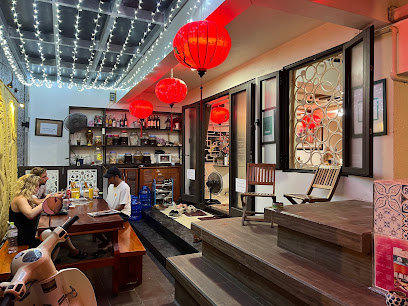
Cozy Restaurant ( Huế )
Discover authentic Vietnamese flavors at Cozy Restaurant in Huế - a must-visit culinary gem for every traveler seeking local delicacies.
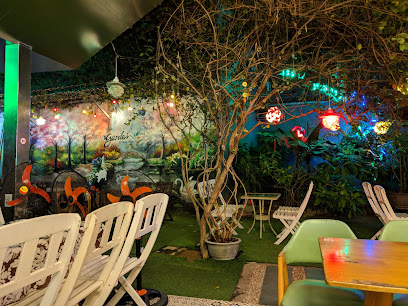
Little Italy Restaurant - Nhà hàng Ý
Experience authentic Italian cuisine at Little Italy Restaurant in Hue—where flavors meet culture in every delightful dish.
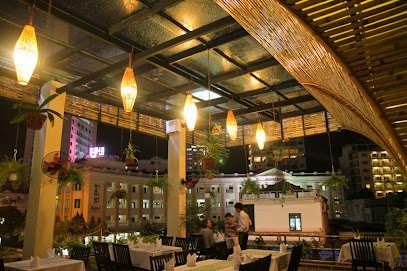
Bistro La Carambole
Experience authentic Vietnamese cuisine at Bistro La Carambole in Huế - where tradition meets modernity in every dish.
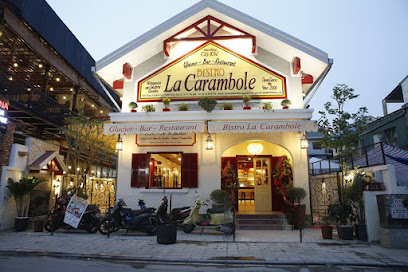
Zucca Restaurant
Discover a delightful fusion of Vietnamese and Italian cuisines at Zucca Restaurant in Huế - an unforgettable culinary experience awaits.
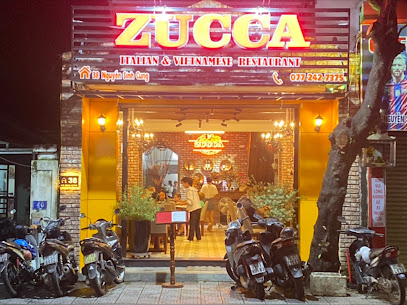
Golden Rice Restaurant
Experience authentic Vietnamese cuisine at Golden Rice Restaurant in Hue – where every dish tells a story of tradition and flavor.
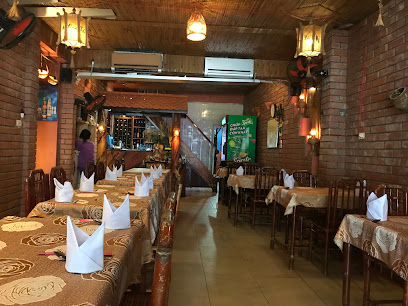
Hoàng Phú Restaurant Huế
Experience authentic Vietnamese cuisine at Hoàng Phú Restaurant in Huế - where tradition meets flavor.
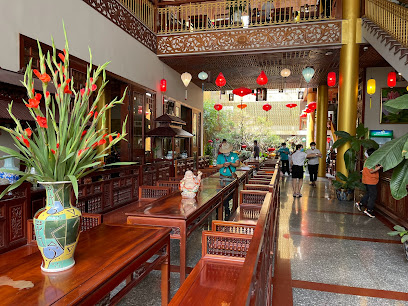
Vũ Cuisine
Experience authentic Italian cuisine at Vũ Cuisine in Huế, where every dish is crafted with passion and tradition.
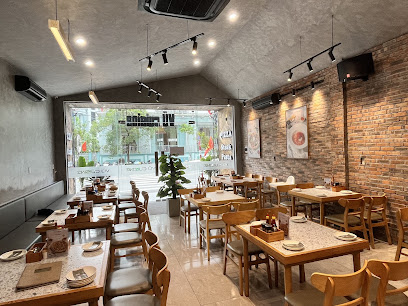
Markets, malls and hidden boutiques
CrowDow Vintage Store
Explore the eclectic fashion and local crafts at CrowDow Vintage Store in Hue, Vietnam, a must-visit for vintage lovers!
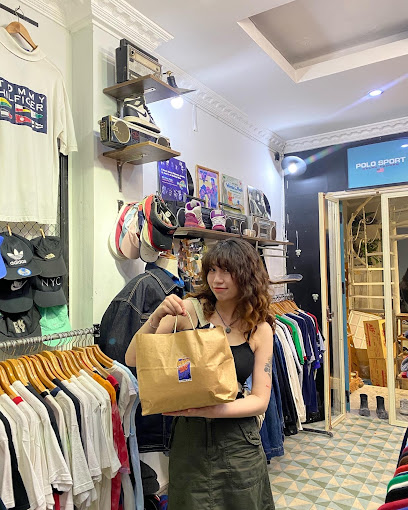
Rintage Clothing Vintage 2Hand Store
Explore Huế's vintage fashion gem at Rintage Clothing, where unique styles and rich history come together for a truly memorable shopping experience.
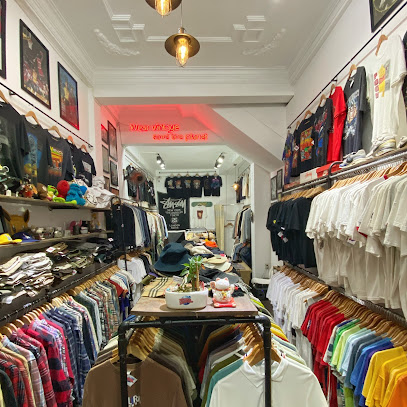
Bleu de Hue
Explore the exquisite antiques of Bleu de Hue, a charming antique store in Hue, Vietnam filled with historical treasures and unique artifacts.
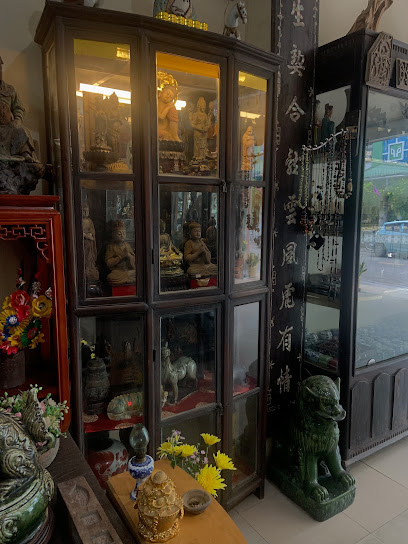
Adam Store Huế
Explore Adam Store Huế: The ultimate destination for stylish men's clothing in the heart of Huế, Vietnam. Elevate your wardrobe with quality fashion.
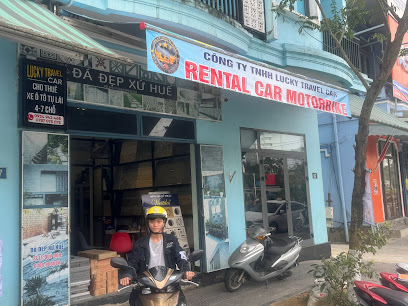
Momono
Discover unique vintage clothing and accessories at Momono, a charming store in the heart of Hue, Vietnam, ideal for fashion enthusiasts and casual shoppers.
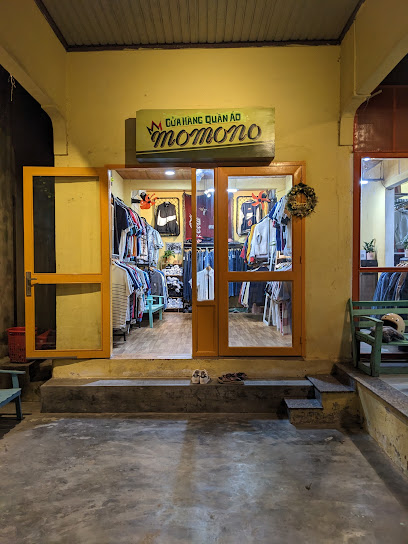
Q Gallery
Discover the heart of Vietnamese craftsmanship at Q Gallery, Huế’s premier destination for unique gifts and artisan treasures.
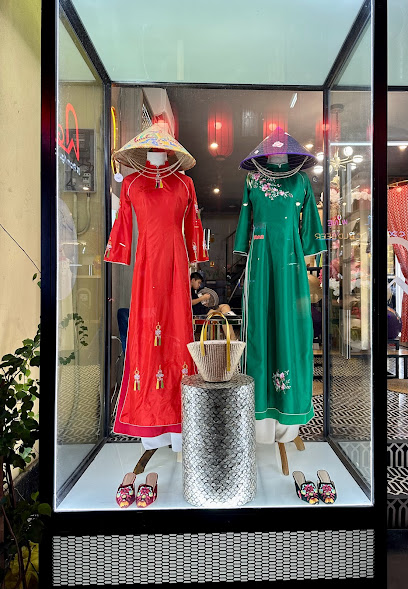
Lekima
Explore Lekima Gift Shop in Huế for unique handcrafted souvenirs that celebrate the rich culture and artistry of Vietnam.
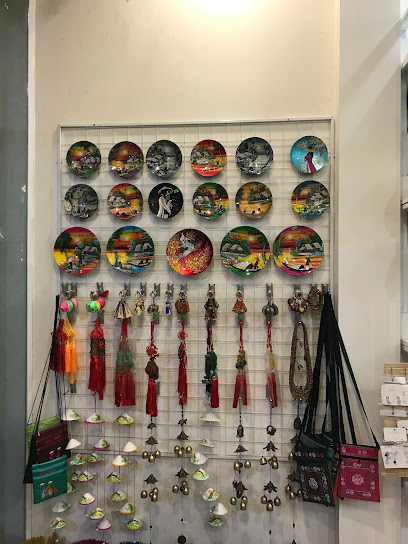
Cửa Hàng Vintage Boutique
Explore the charm of vintage fashion accessories at Cửa Hàng Vintage Boutique in Huế, Vietnam – a must-visit for style enthusiasts.

Vietnam Gifts
Explore the rich cultural heritage of Vietnam through unique gifts and handicrafts at Vietnam Gifts in Hué.

Kikilovebox
Explore Kikilovebox in Huế for unique gifts and souvenirs that reflect the rich Vietnamese culture and support local artisans.
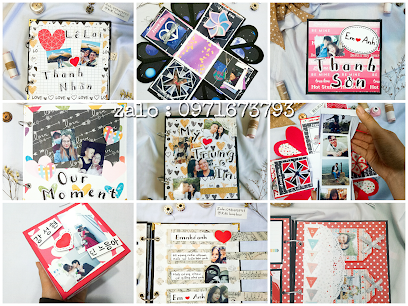
Essential bars & hidden hideouts
DMZ Bar & Restaurant
Discover the vibrant atmosphere and authentic Vietnamese flavors at DMZ Bar & Restaurant in Huế, where every meal is a delightful adventure.
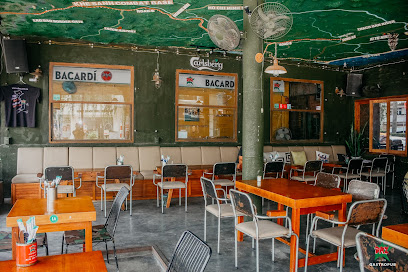
The Chàm Craft Beer and Whisky
Discover the vibrant atmosphere and exceptional selection of craft beers and whiskies at The Chàm Craft Beer and Whisky in Huế, Vietnam.
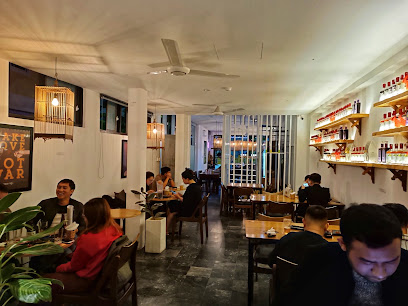
Secret Lounge Hue
Experience the vibrant nightlife at Secret Lounge Hue, where exquisite cuisine meets creative cocktails in a cozy ambiance.
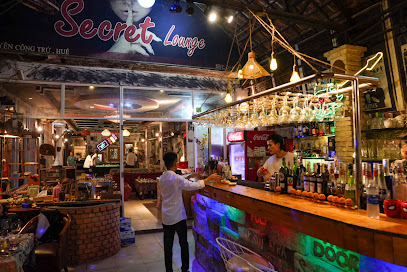
Brown Eyes Bar
Discover the vibrant nightlife of Hue at Brown Eyes Bar, where cocktails, music, and fun come together in a lively atmosphere.
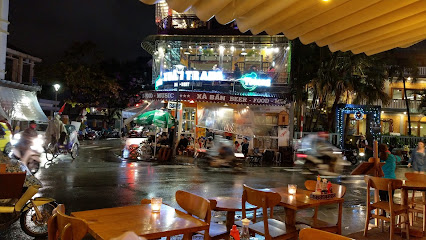
Century Beer Garden
Experience the vibrant atmosphere and diverse drink selection at Century Beer Garden, the perfect spot for tourists in Hue, Vietnam.
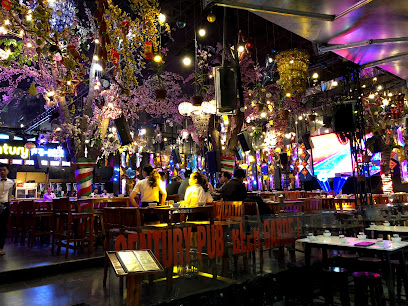
Đông Bar - Unlock The Vibes
Experience the vibrant nightlife at Đông Bar in Huế, where unique cocktails and live music create an unforgettable atmosphere.
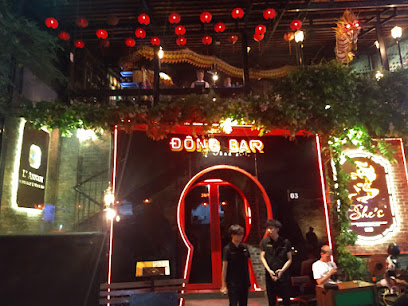
Street Bar: Whatever You 1
Unwind at Street Bar: Whatever You 1, where vibrant nightlife meets authentic Vietnamese hospitality in the heart of Huế.
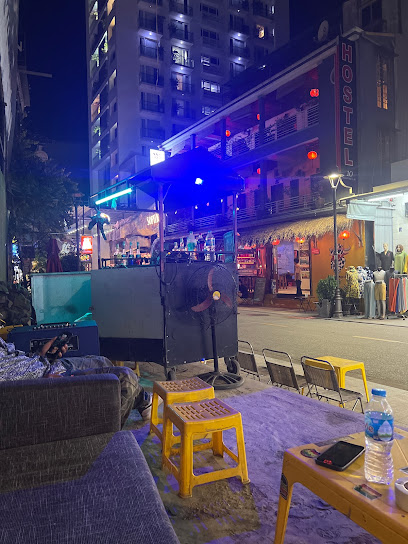
Méw
Experience the vibrant atmosphere of Méw, a cozy bar in Huế offering a delightful selection of beverages and a warm, inviting ambiance.
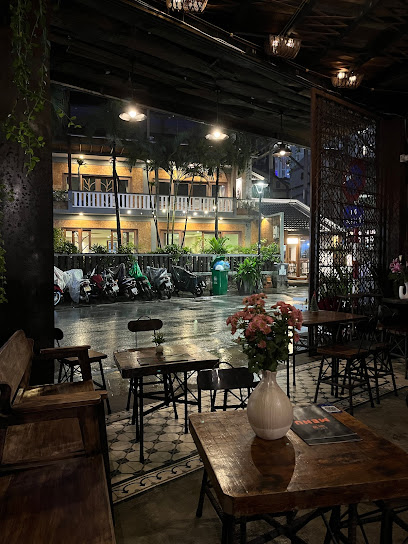
ALITA - Lounge
Discover Huế's nightlife at ALITA - Lounge, a vibrant bar perfect for relaxation and socializing with locals and travelers alike.
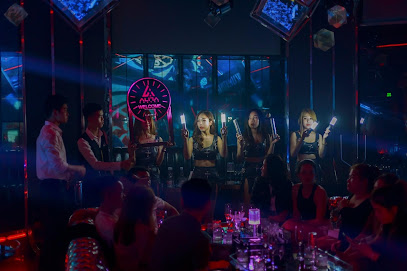
KHIA
Discover KHIA in Huế, where vibrant nightlife meets local culture in a unique bar experience with a friendly atmosphere.
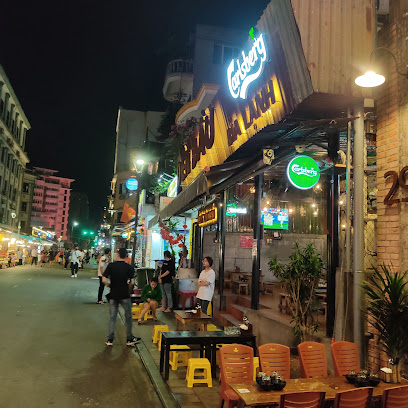
Local Phrases
-
- HelloXin chào
[sin chow] - GoodbyeTạm biệt
[tahm byet] - YesCó
[koh] - NoKhông
[kohng] - Please/You're welcomeXin vui lòng
[sin vwee long] - Thank youCảm ơn
[kahm uhn] - Excuse me/SorryXin lỗi
[sin loy] - How are you?Bạn khỏe không?
[bahn kweh kohng] - Fine. And you?Khỏe. Còn bạn?
[kweh. kawn bahn] - Do you speak English?Bạn có nói tiếng Anh không?
[bahn koh noy tyeng ang kohng] - I don't understandTôi không hiểu
[toy kohng hyehu]
- HelloXin chào
-
- I'd like to see the menu, pleaseTôi muốn xem thực đơn, vui lòng
[toy muhn sehm took duhn, vwee long] - I don't eat meatTôi không ăn thịt
[toy kohng an tit] - Cheers!Chúc sức khỏe!
[chook sook kweh] - I would like to pay, pleaseTôi muốn thanh toán, vui lòng
[toy muhn thanh toan, vwee long]
- I'd like to see the menu, pleaseTôi muốn xem thực đơn, vui lòng
-
- Help!Cứu với!
[kew vwee] - Go away!Đi ra!
[dee rah] - Call the Police!Gọi cảnh sát!
[goy kahng saht] - Call a doctor!Gọi bác sĩ!
[goy bahk see] - I'm lostTôi lạc đường
[toy laht doong] - I'm illTôi bị ốm
[toy bee ohm]
- Help!Cứu với!
-
- I'd like to buy...Tôi muốn mua...
[toy muhn mwa] - I'm just lookingTôi chỉ xem thôi
[toy chee sem toy] - How much is it?Nó giá bao nhiêu?
[noh za bao nyew] - That's too expensiveĐắt quá
[daht kwah] - Can you lower the price?Bạn có thể giảm giá không?
[bahn koh thee zahm za kohng]
- I'd like to buy...Tôi muốn mua...
-
- What time is it?Bây giờ là mấy giờ?
[by zoh la may za] - It's one o'clockBây giờ là một giờ
[by zoh la moot za] - Half past (10)Mười giờ rưỡi
[mooee za zoy] - MorningBuổi sáng
[bwowee sang] - AfternoonBuổi chiều
[bwowee chee-ew] - EveningBuổi tối
[bwowee toy] - YesterdayHôm qua
[home kwah] - TodayHôm nay
[home nigh] - TomorrowNgày mai
[ny-eye my] - 1Một
[moot] - 2Hai
[high] - 3Ba
[bah] - 4Bốn
[bun] - 5Năm
[nahm] - 6Sáu
[sow] - 7Bảy
[bahy] - 8Tám
[tahm] - 9Chín
[cheen] - 10Mười
[mooee]
- What time is it?Bây giờ là mấy giờ?
-
- Where's a/the...?Cái...ở đâu?
[kai uh dah-ow] - What's the address?Địa chỉ là gì?
[yah chee la zee] - Can you show me (on the map)?Bạn có thể chỉ cho tôi (trên bản đồ) không?
[bahn koh thee chee chaw toy, trern bahn doh, kohng] - When's the next (bus)?Xe buýt tiếp theo là khi nào?
[zeh bwit tyep the-oh la kee nah-oh] - A ticket (to ....)Một vé (đi ...)
[moot vee, dee]
- Where's a/the...?Cái...ở đâu?
History of Phú Hội
-
Phú Hội, located on the banks of the Perfume River, has roots that trace back to the early Nguyen Dynasty in the 19th century. It was established as an important trading hub due to its strategic position near the Imperial City of Huế. The area became known for its artisans and merchants, contributing to the vibrant economy of Huế.
-
During the Nguyen Dynasty, Phú Hội became a melting pot of cultures, where Vietnamese traditions mingled with influences from China and France. The architecture in the neighborhood reflects this diverse heritage, showcasing traditional Vietnamese wooden houses alongside colonial-era buildings, creating a unique urban tapestry.
-
In the late 19th and early 20th centuries, French colonial rule brought significant changes to Phú Hội. The introduction of Western-style education and infrastructure transformed the neighborhood. Many local artisans adapted their crafts to cater to the needs of the French settlers, leading to a shift in traditional practices and economic activities.
-
Phú Hội experienced considerable turmoil during the Vietnam War, as Huế was a strategic location for both North and South Vietnamese forces. The neighborhood witnessed intense fighting and significant destruction, particularly during the Tet Offensive in 1968, which marked a pivotal moment in the war and reshaped the local community.
-
After the Vietnam War, Phú Hội underwent a period of reconstruction and revitalization. Efforts were made to restore the historic architecture and cultural landmarks that had been damaged. Today, Phú Hội is recognized for its cultural significance, hosting traditional festivals and arts that celebrate the rich heritage of Huế.
Phú Hội Essentials
-
Phú Hội is easily accessible from other neighborhoods in Hue. If you're coming from the city center, you can take a local bus or taxi, which takes about 10-15 minutes. For a more scenic route, consider cycling along the Perfume River, which offers beautiful views of the surrounding landscape.
-
Phú Hội is a compact neighborhood, making it convenient to explore on foot or by bicycle. Local bicycles can be rented from various shops. Taxis and motorbike taxis (xe ôm) are also available for longer distances. Public buses run infrequently, so they may not be the best option for tourists.
-
Phú Hội is generally safe for tourists, but it's wise to stay aware of your surroundings. Avoid isolated areas, especially after dark. Petty crimes like pickpocketing can occasionally occur in crowded places, so keep your belongings secure. Areas around the main tourist sites are typically well-patrolled.
-
In case of an emergency, dial 113 for police assistance, 115 for medical emergencies, and 114 for fire services. It is advisable to keep the contact details of your country's embassy or consulate handy. For minor health issues, local pharmacies are available, and larger hospitals can be found in the city center.
-
Fashion: Do dress modestly, especially when visiting temples or local homes. Avoid shorts and sleeveless tops. Religion: Do respect local customs; always remove your shoes before entering homes or sacred places. Public Transport: Do give up your seat to the elderly and be mindful of personal space. Don't engage in loud conversations. Greetings: Do greet locals with a smile and a slight bow. Eating & Drinking: Do try the local dishes and drinks, especially street food. Don't waste food, as it's considered disrespectful.
-
To experience Phú Hội like a local, visit the traditional craft villages nearby, such as the paper-making village. Engage with artisans to learn about their crafts. Try to attend local festivals if your visit coincides with them, as they offer a deep insight into the culture and traditions. Don't hesitate to try homemade dishes at local eateries; the hospitality is warm and welcoming.
Nearby Cities to Phú Hội
-
Things To Do in Da Nang
-
Things To Do in Hoi An
-
Things To Do in Tam Ky
-
Things To Do in Pakse
-
Things To Do in Champasak
-
Things To Do in Savannakhet
-
Things To Do in Thakhek
-
Things To Do in Ubon Ratchathani
-
Things To Do in Quy Nhon
-
Things To Do in Buon Ma Thuot
-
Things To Do in Kratie
-
Things To Do in Nha Trang
-
Things To Do in Ha Long
-
Things To Do in Dalat
-
Things To Do in Udon Thani










